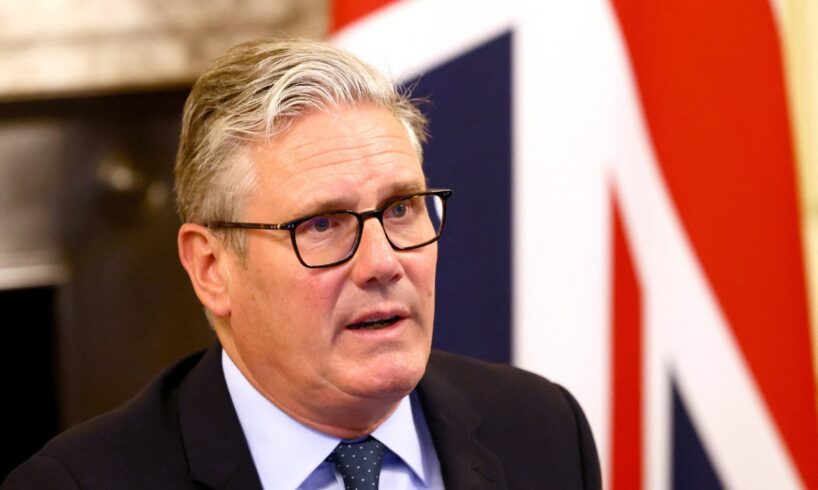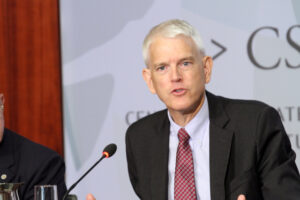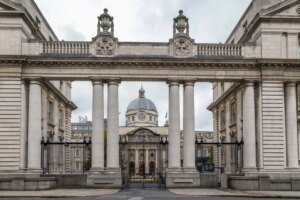
Sign up for the View from Westminster email for expert analysis straight to your inbox
Get our free View from Westminster email
Get our free View from Westminster email
Sir Keir Starmer is considering introducing digital ID cards in a bid to crack down on small boat crossings, Downing Street has said.
The prime minister did not say whether identification cards would be made compulsory, but confirmed the government is considering a rollout of the technology.
It comes days after one of Sir Keir’s top ministers Pat McFadden said Britain is “behind the curve” and called for the rollout of digital IDs.
No 10 has previously steered clear of digital ID cards as a way to deter Channel crossings, despite repeated calls from senior figures including former Labour prime minister Sir Tony Blair.
Asked on Tuesday whether ministers were considering rolling out a compulsory national ID card, the PM’s spokesman said: “We’re willing to look at what works when it comes to tackling illegal migration, and the Chancellor of the Duchy of Lancaster Mr McFadden referenced that over the weekend in terms of applications of digital ID to the immigration system.
open image in gallery
Keir Starmer is considering rolling out digital IDs (PA)
“The point here is looking at what works, ensuring that we’re doing what we can to address some of the drivers of illegal migration, tackle those pull factors, ensure that we’re doing everything we can to crack down on illegal working.
“We’ve made significant progress when it comes to illegal working, surged arrests by 50%, but there’s more to do in this space.”
Big Brother Watch said mandatory digital ID cards would lead to a “dystopian nightmare” in which Britons would be “forced through digital checkpoints to go about our everyday lives”.
Interim director Rebecca Vincent told BBC Radio 4’s Today programme the measure would not stop small boat crossings but would “simply put the burden on the already law-abiding citizens to prove their right to be here”.
But the Tony Blair Institute said small boat crossings are “about the pull of the shadow economy here and gangs are literally selling this as part of their pitch to vulnerable people who are then making the crossing”.
open image in gallery
Tony Blair has long called for digital ID cards (AFP/Getty)
Executive director of politics Ryan Wain added: “Digital ID cards just completely shut that down… simply put, it would put an end to paper IDs which are easily forged.”
Mr McFadden suggested over the weekend that Britain could implement a system similar to the Baltic state of Estonia, where its citizens are given a unique identification number.
In an interview with The Times, Mr McFadden said the ID scheme could be used to tackle the surge in small boat crossings and to combat benefit fraud as people would have to prove who they were before taking employment.
France has previously argued that asylum seekers are attracted to the UK because of their ability to find work in the informal economy, in roles such as takeaway delivery drivers or the service industry, despite not being allowed to work upon entry in Britain.
“People shouldn’t be able to come to the UK and work illegally if they don’t have a right to work,” Mr McFadden said. “France has talked about pull factors in the context of the migration debate. If there are pull factors like that, we should deal with them,” he added.
open image in gallery
Pat McFadden said ID cards would limit the pull factors drawing migrants over the Channel in small boats (PA)
The PM’s official spokesman also said plans to house migrants in “modular buildings” and at old industrial sites are under discussion as Sir Keir faces pressure to empty asylum hotels of migrants.
Sir Keir is due to gather ministers to plan action on going “further and faster” on tackling illegal migration on Tuesday afternoon, according to No 10.
The prime minister’s official spokesman said Sir Keir reiterated migration was a “central issue” as the Cabinet met on Tuesday, and called for “further and faster” action on it.
The spokesman also said: “He said it was easy to understand the frustration people feel at the level of illegal crossings and the site of asylum hotels in their communities.
“He will be chairing a ministerial meeting later today to consider how we can go further and faster to combat illegal crossings.
“This includes continuing to work with the French authorities, cracking down on pull factors and illegal working, including exploring options around digital ID, accelerating the closure of hotels and looking at better forms of accommodation, and driving further progress returning people with no right to be here.”





